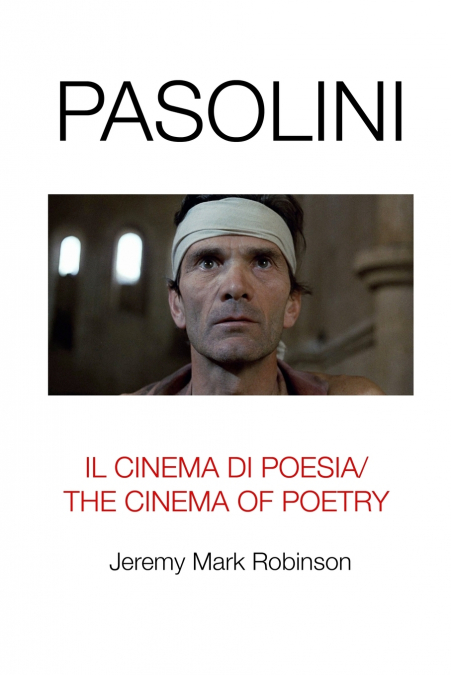
 Librería Perelló (Valencia)
Librería Perelló (Valencia)
 Librería Aciertas (Toledo)
Librería Aciertas (Toledo)
 El AlmaZen del Alquimista (Sevilla)
El AlmaZen del Alquimista (Sevilla)
 Librería Elías (Asturias)
Librería Elías (Asturias)
 Librería Kolima (Madrid)
Librería Kolima (Madrid)
 Donde los libros
Donde los libros
 Librería Proteo (Málaga)
Librería Proteo (Málaga)
PASOLINIIL CINEMA DI POESIA/ THE CINEMA OF POETRY By Jeremy Mark RobinsonA new critical study of the Italian filmmaker and poet Pier Paolo Pasolini (1922-1975). The focus is the cinema of Pasolini, which includes The Gospel According To Matthew (his best-known film), the controversial Salo, the ’trilogy of life’ movies based on Middle Ages texts (Chaucer, Boccaccio and the 1001 Nights), adaptations of ancient world plays (Medea and Oedipus Rex), and poetic portraits of contemporary Roman life (Accattone, Mamma Roma and The Hawks and the Sparrows). Pasolini: Il Cinema di Poesia/ The Cinema of Poetry considers all of Pier Paolo Pasolini’s work in cinema, with a chapter on each feature-length movie, plus the short episodes he made for anthology films, all of his documentaries, and his unmade film projects. There is a biography of Pasolini, an exploration of aspects of his cinema, and topics related to Pasolini’s life and interests such as religion, poetry, homosexuality, his colleagues, Marxist politics, modern Italy, and the Third World. Pier Paolo Pasolini was born on March 5, 1922, in Bologna, Italy. He died on November 2, 1975, in Ostia, Rome (he was buried in Casarca, in his beloved Friuli). When he was a film director, Pier Paolo Pasolini was certainly an intimidating presence, with a formidable reputation - like Cecil B. DeMille, D.W. Griffith or Jean-Luc Godard. Very confident, very smart, a great talker and interviewee, a leader on set, with no doubts from anyone about who was the primary creator and author. The appendices include entries on the work of Pier Paolo Pasolini’s collaborators, such as Bernardo Bertolucci and Sergio Citti, and films made from Pasolini’s fiction (such as A Violent Life and The Big Night). Fully illustrated with images from all of Pasolini’s works in cinema. Bibliography, appendices, filmography and notes. 536 pages. Full colour cover. www.crmoon.com